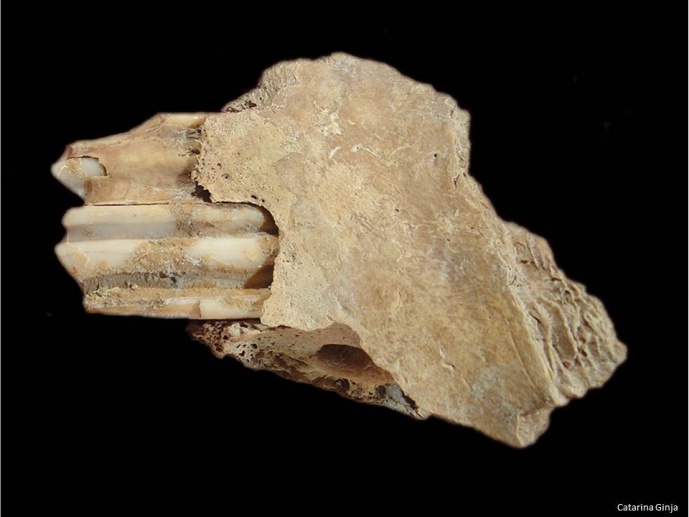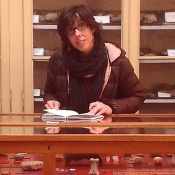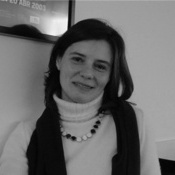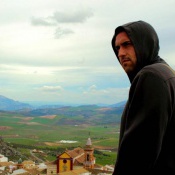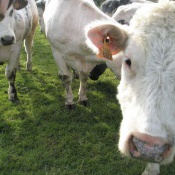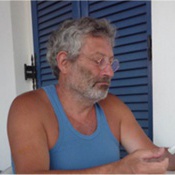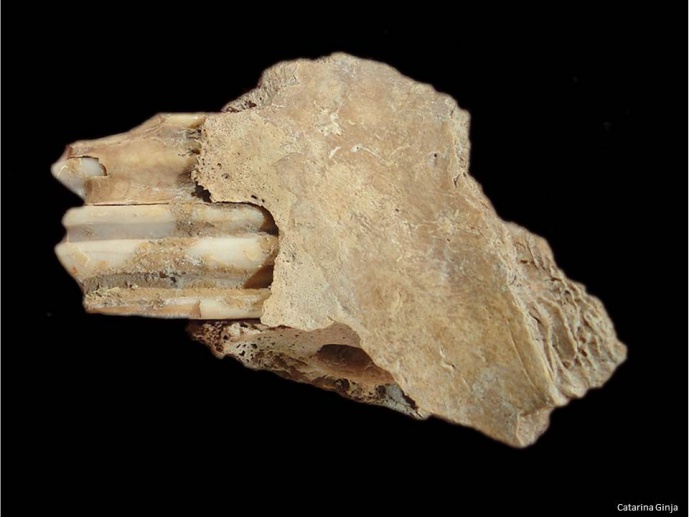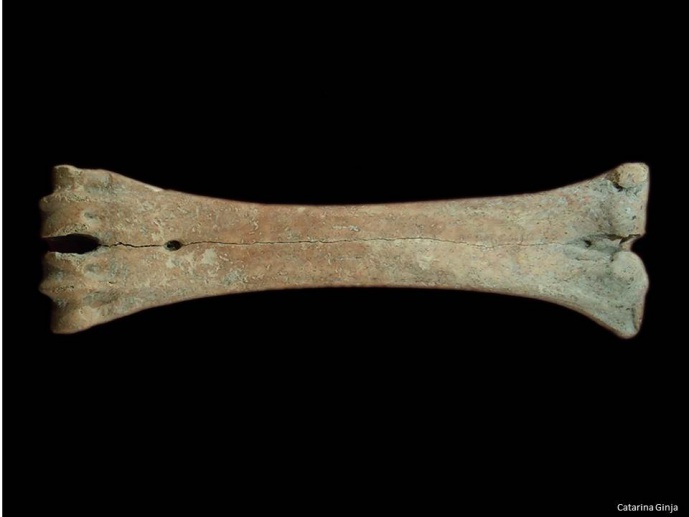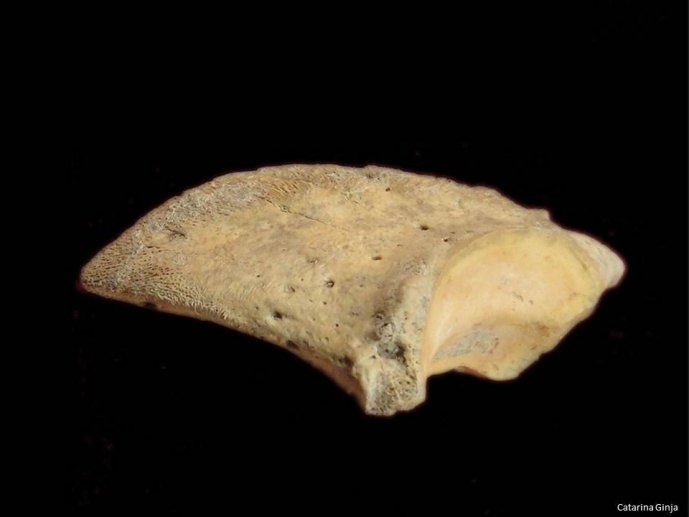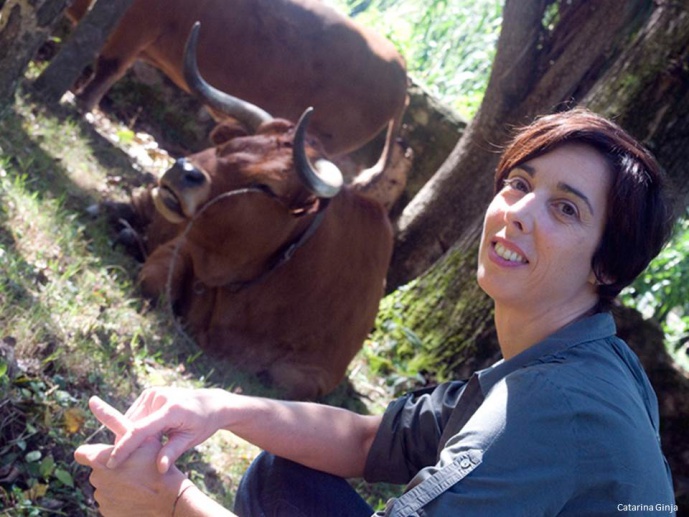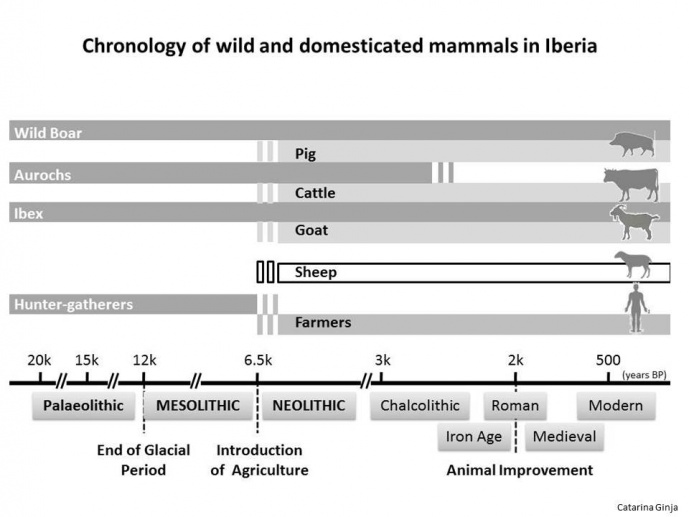ARCHAIC - The archaeogenetics of Iberian cattle: investigating their origins, evolution and improvement
/CVT-LIV/2827/2014-POCI-01-0145-FEDER-016647 / LISBOA-01-0145-FEDER-016647
The aurochs (Bos primigenius) is the wild ancestor of domestic cattle and its evolutionary history is mainly unknown. Iberian aurochs disappeared in the end of the Chalcolithic, having coexisted with domestic cattle of Middle Eastern origin for millennia. Probably, either hybridization between wild and domestic cattle and/or local domestication of aurochs occurred. Iberian native cattle may represent relics from extinct aurochsen, and show high genetic diversity despite the notable geographic distance of this territory from the primary Near Eastern centre of domestication.
It is agreed that diachronic (spanning long time scales) ancient DNA studies are required to infer the origins and evolutionary trajectories of domestic animals. The MAJOR AIM of the ARCHAIC project is to perform a phylochronological study, by using cutting-edge molecular biology methods, to capture ancestral variation and to unveil the origins and modes of improvement of Iberian and North African cattle. A MULTIDISCIPLINARY approach – merging zooarchaeology and genomics – will be employed, which is critical to capture the temporal and geographical dimensions of the history that shaped the genetic composition of cattle. Catarina Ginja (P.I.) was successful in recovering DNA from Iberian remains as old as 16,000 years. ARCHAIC’s team includes experts from national institutions, but also from renowned foreign archaeogenetics groups, namely the Archaeological Research Laboratory, Stockholm University, and the Evolutionary Biology Centre, Uppsala University, which will be key for accomplishing this challenging project.
ARCHAIC will allow to: i) Depict changes within Bos populations over time, at a fine scale, along a transect from Western Europe to North Africa; ii) Scrutinize the degree and time of admixtures between aurochs and domestic cattle; iii) Identify and date events of cattle improvement, i.e. to investigate past genetic variability in association with human driven breeding practices; iv) Provide scientific information regarding processes of evolution supportive to local breed conservation plans.
Dates:
01 jun 2016 - 01 mar 2019
Total funding: 197 696,00 €
FEDER support: 161 070,2 €
National Funding: 36 625,80€
POR Lisboa: 15492,00€
To visit the official website of this project, please click here.
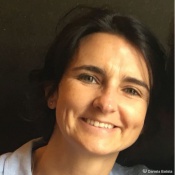
Silvia Guimarães Chiarelli
Rita Rasteiro; Anders Götherström; António Valera; Carlos Fernández; Ceiridwen Edwards; Cleia Detry; Elizabeth Wright; Emma Svensson; João Cardoso; Nelson Almeida; Pablo Arias Cabal; Silvia Valenzuela
